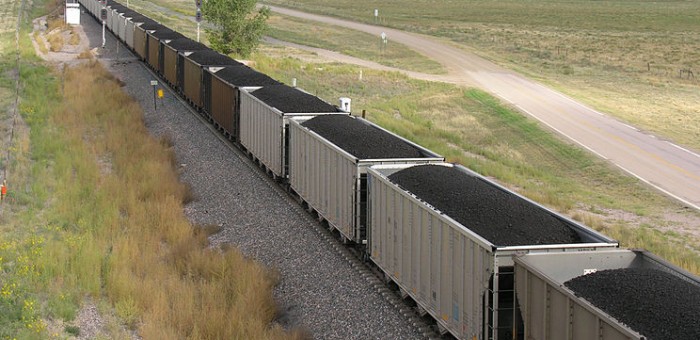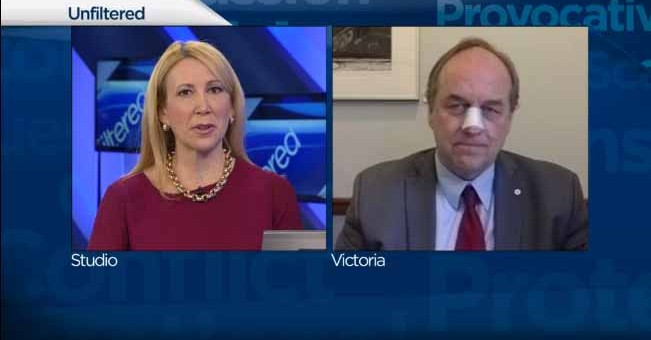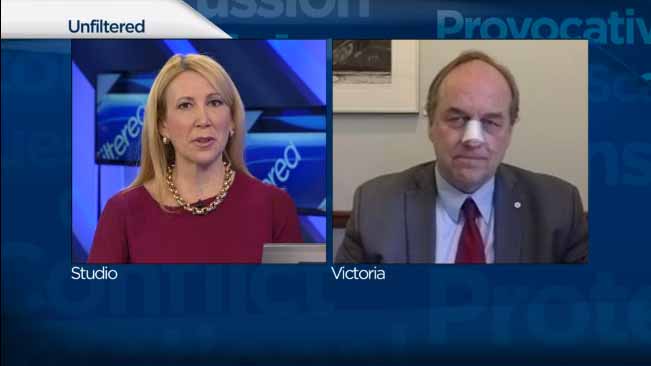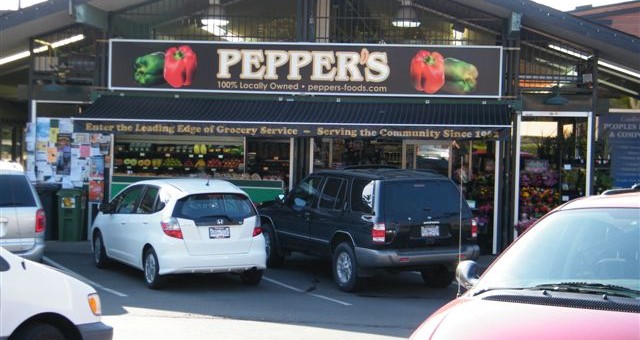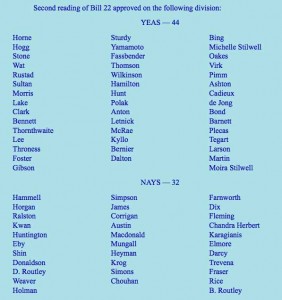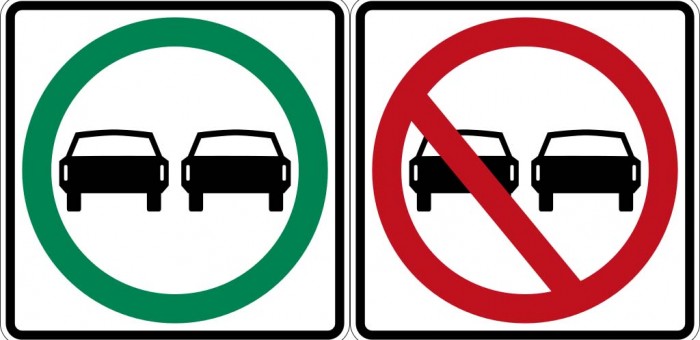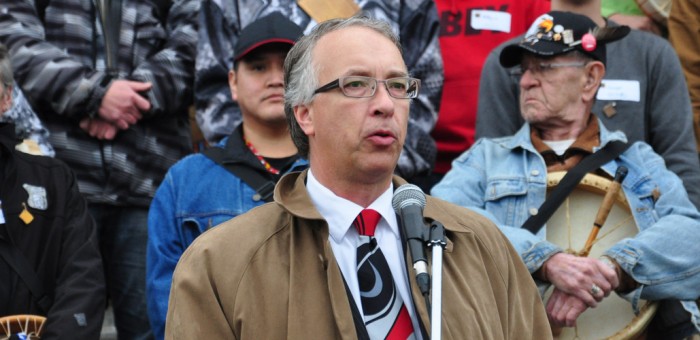Justice
Probing Jurisdictional Rights and Responsibility Regarding Air Quality in Metro Vancouver
Last week I sent a letter to Minister Anton hoping to clarify the province’s role in Fraser Surrey Docks’ ongoing court case. The company is disputing a ticket issued by Metro Vancouver and the court’s decision could have significant consequences for Vancouver and the province as a whole. Below is the text of the letter. I await a reply.
Letter to the Minister
April 22nd, 2015
Honourable Suzanne Anton
Minister of Justice
Parliament Buildings
Victoria, BC
V8V 1X4
Dear Minister Anton:
I am writing to you with regards to the ticket issued to the Fraser Surrey Docks LP for air contamination and the ongoing trial disputing the fine.
As you know, the maintenance of air quality is generally the purview of the province and government has decided to partially delegate this responsibility. Under the Environmental Management Act, passed in 2003, the Greater Vancouver Regional District is able to, “by bylaw, prohibit, regulate and otherwise control and prevent the discharge of air contaminants.”
On October 3rd, 2013 the regional district used this power to issue a $1,000 fine to the Fraser Surrey Docks LP for the discharge of an air contaminant, in this case soybean dust. This fine was disputed by the company, arguing that because they operate within the boundaries of Port of Metro Vancouver they are beyond the jurisdiction of regional, and by extension provincial, authority.
Serious concerns have been raised over the implications that this case could have. Locally, a decision in favour of Fraser Surrey Docks could affect Metro Vancouver’s ability to maintain clean, breathable air in its jurisdiction, as air contaminants do not adhere to provincial and federal boundaries.
Secondly, there have been concerns that the legal decision could have ramifications that go far beyond the port itself. The maintenance of air quality is a responsibility shared by all levels of government but it primarily falls within provincial jurisdiction. A decision in favour of Fraser Surrey Docks could undermine the province’s ability to set air quality standards for other federal lands, including ports and pipeline corridors.
With this background in mind, I would like to submit the following questions:
- What is the government’s position on the validity of the ticket (#006035) issued to Fraser Surrey Docks LP by the Greater Vancouver Regional District for the discharge of air contaminants?
- In your government’s opinion, how far reaching are the powers surrounding air quality that you have delegated to the Greater Vancouver Regional District? Do they include federal port lands?
- What is the historic and current involvement of the province in this case?
- Following question three, does the province have any plans to either remain involved or get involved in this case in the future? If so, what are these plans?
I look forward to the Minster’s response to my questions and hope that it will shine more light on this issue.
Sincerely,
Andrew Weaver
MLA Oak Bay-Gordon Head
Why I am opposing Bill 20: Election Amendment Act
In the coming weeks, we will be debating Bill 20: Election Amendment Act. I recently did an interview on BC1 Unfiltered which outlines the reasons why I will be opposing the Bill.
The BC1 Interview
Samantha Falk was stepping in for Jill Krop in the interview.
Bill 22: Special Wine Store Licence Auction Act
On Wednesday, April 22 (Earth Day) I rose to speak to Bill 22: Special Wine Store Licence Auction Act. This Bill provides government with the legislative power to create an auction for wine licenses in support of a wine-on-shelves in grocery store model. In my opinion, this bill creates a multi-tiered system that preferentially favours large grocery chains over small business. It is following a similar pattern to what we are seeing emerging with government legislation. It’s a pattern that is putting more and more power in the hands of the minister to do whatever he or she wants to do, with little legislative accountability. The only reason this legislation is being brought forward at all is because the auction “bids” that government receives are ultimately defined as a “tax” whose collection requires consent of the legislature.
To give a specific example of how this bill might hurt small business, we have to look no further than the locally-owned Peppers Food Store in Cadboro Bay Village.
In 1962 John Pepper opened a Shop Easy grocery store at the location. In the early 80’s John Davits and his partner bought the store after working in the meat department for Mr. Pepper. Once they took ownership, the community voted on a new name and it was renamed Pepper’s Food Store. John then became sole owner in 1990, although he has been either employed there or owner for over 35 years. Currently, he is in the process of turning over the day to day operations to his son, Cory, who has worked at the store in many capacities for over 25 years. Peppers is a grocery story with an area of 7,500 square feet. It does not qualify as a “grocery store” under the government’s definition that a “grocery store” referred to in the act has an area of at least 10,000 square feet. Peppers Foods owner John Davits publicly expressed concern over the fairness of this Bill. I concur.
Of course Pepper’s isn’t the only grocery store in Oak Bay-Gordon Head that doesn’t qualify. For example, the local grocery store that my family and I get most of our groceries from is Mount Doug Market owned by Carol and Cori Lau (it’s walking distance from our house). They too have an area less than 10,000 square feet yet they too only sell groceries to local residents.
This legislation grants government regulatory power to prescribe “…the number of special wine store licenses in respect of which bids may be accepted under this Act.” In essence, claims made in the media that there will be no new licenses are certainly not evident from this act. The legislation exempts “grocery stores” that win an auction license from the “one-kilometre rule” (prohibiting “store within store” grocery store liquor outlets being established within one kilonmetre of an existing distributer).
Here I worry about the Tuscany Village Metro Liquor store that has developed an excellent reputation for it’s special focus on wine, especially BC VQA wines. There are three larger grocery stores very close by that could undercut their market significantly, especially in light of the special pricing specialty wine store license auction holders are entitled to. Locally-owned small businesses are being unfairly treated. This is not right and I am absolutely bewildered why government wouldn’t ensure that small business in our community is protected. Small business in the engine of our economy.
Finally, the fact that these specialty wine store licenses restrict grocery stores to carry BC wine, cider or sake on their shelves may not be allowable under the North American Free Trade Agreement (NAFTA). If we look specifically at Annex 312 of NAFTA it seems pretty clear to me that this act is simply not going to stand up to a NAFTA challenge. I wll be raising this at committee stage when we continue debate on the bill next week.
I was not alone in opposing the Bill as is evident in the second reading vote below.
The Vote
Bill 15: Motor Vehicle Amendment Act
Today in the legislature I rose to speak to Bill 15: The Motor Vehicle Amendment Act. The amendments in this bill will affect the AirCare program and the Immediate Roadside Prohibition (IRP) program. It adds an official end to AirCare, which stopped running on December 31st 2014, for light duty passenger cars and trucks. For IRP it legislates mandatory participation in anti-drunk driving programs for repeat offenders (including ignition interlock systems).
Bill 15 would also make it harder for drivers to drive in the left lane of a high-speed highway, specify approved winter tires/use of chains, and allow municipalities to regulate motorcycle parking to within six metres of intersections with traffic control signs or signals.
Below is the text of my speech (note previously Leonard Krog from Nanaimo had me in stitches during his speech a few minutes earlier in the day. I continued the banter towards the end of my speech).
A. Weaver: I, too, echo the sentiments as expressed by the member for Delta South, particularly with respect to the burden of proof, which in several places in this legislation is being moved. “The burden of proof in a review of a driving prohibition” is now on the individual. This is not really consistent with what most British Columbians believe and want to happen in our province — that is, innocent until proven guilty. The implication here, of course, is guilty until proven innocent, and I wonder to what extent that actually would be held up under a legal challenge.
In fact, our Justice Minister admits that the government’s contentious drunk-driving penalties may again be challenged as unconstitutional. In the Vancouver Sun she was quoted as saying, “Yes, it may very well be challenged, but we have great confidence in the program and in the good that the program does for safety on British Columbia’s highways.” I would hope that during third reading we’ll be able to explore this and determine whether or not the Minister of Justice, via the Minister of Transportation, would be able to clarify some of the rationale behind their government getting legal opinion that would support this as actually standing up in courts.
Like the member for Nanaimo, I, too, had many, many groups of people not come to my office concerned about motorcycle parking six metres from the intersections. I gather that this is an issue in some jurisdictions. In Victoria, Oak Bay–Gordon Head, left-lane driving certainly is an issue, as every one of the members here will know, coming from either the ferries or the airport. I think left-lane driving started in Victoria and, in fact, despite this legislation, will never change here in the capital regional district.
There are rules in place already that can deal with left-lane drivers if they’re holding up traffic. I’m not sure that this emphasis on fines and fees is either enforceable or, in fact, will ever be enforceable. Our police system’s services are taxed at the best of times, and pulling over people driving in the left lane is probably not number one on their priorities.
I recognize this populist approach to introducing policy that people will hang their hat on and be all very pleased with. I know everybody at one time has been frustrated — as I was just yesterday, coming back from the airport — when two people are driving side by side on the highway at 70 kilometres an hour when the speed limit is 90. Does that mean we should be ticketing them? Does that mean we should be just maybe perhaps pulling them over and talking with them? There is legislation that would presently allow police to deal with such people if they do, in fact, believe that they are causing a hazard on the road.
One of the things that I was hoping to see in this legislation, which I recognize is minor tinkering with the Motor Vehicle Act, is some discussion about how repeat texters, repeat hand-held device users, are also dealt with. There’s a lot in here implied about drunk-driving legislation, but it really is not much different from repeat offenders of texting. There are those people out there who have been caught many times.
There are means and ways to actually have your phone linked into interlock programs, much like exist for drunk driving. I was wondering. I will explore further at third reading whether the government has actually explored this as perhaps also including interlock repeat texting offender programs. I do applaud the government in actually introducing text to ensure that the person requiring the ignition interlock program does, in fact, pay for it.
In terms of the AirCare program, you might expect someone from the B.C. Green Party to stand up here and criticize government for removing an AirCare program, but the reality of it is that cars have changed in the last decade. Most cars today on the streets have air quality emission standards that are far beyond anything that existed ten years ago. As pointed out in discussions on this legislation, there still is an ability to require people to fix their tailpipe if they are deemed to be driving a car that is creating unsightly or unhealthy air quality emissions.
With that, I do look forward to third reading. I do have some concerns with the left-lane legislation, despite the fact that I agree that it is something that people may consider. I will be likely amending that these be struck from the bill, as I believe they are awfully punitive and are unenforceable, and in fact, legislation already exists on the books to allow police to deal with this.
I believe that these left-lane-hog rules are nothing more than populist politics catering to a demographic that is perhaps not likely to consider voting in the future. This is rather cynical of me, but really, we’ve got some critical issues in this province to deal with. Motorcycle parking six metres from an intersection, left-lane driving….
I recognize that the member for Nanaimo likes the left and the Minister of Aboriginal Relations and Reconciliation likes to drive in the right. You’re not addressing my problem here. My problem is that I like to drive right in the middle in between both lanes, and this legislation ignores people like me.
L. Krog: You know what happens to chickens in the middle of the road.
A. Weaver: The member for Nanaimo has asked me if I know what happens with chickens in the middle of the road. I think it’s important for me to address that. They don’t last very long, but legislation could be brought in place to ensure that they do.
Deputy Speaker: Certainly, the member digresses.
A. Weaver: I’m sorry, hon. Speaker. It was truly, though, a defining moment of my time here in the Legislature when the Minister of Aboriginal Relations and Reconciliation came over and sat beside my colleague here, the member for Nanaimo, and discussed left- versus right-lane driving just a matter of moments ago.
With that, I thank you for your time, and I look forward to third reading.
Deputy Speaker: Seeing no further speakers, the minister closes debate.
Hon. S. Anton: I do appreciate the members’ comments on this important piece of legislation. I look forward to canvassing the issues during the committee stage. Although for the member for Oak Bay–Gordon Head, I’m not sure that we’re going to be able to deal with the middle-lane piece. But I’m confident that the other pieces of the legislation will be dealt with in an appropriate manner when the time comes.
With that, Mr. Speaker, I move second reading of Bill 15.
Relationship-Building Requires Trust and Respect
After Question Period yesterday the premier participated in a media scrum. There she announced that the government made “a principled policy decision” regarding the direction that First Nations treaty negotiations would take. Today I rose in Question Period to ask the Minister of Aboriginal Relations and Reconciliation about building trust and respect within the Treaty process. I noted that this wasn’t consistent, in my view, with an apparent “principled policy decision” being announced in a media scrum after question period much to the surprise of key stakeholders.
As you will see from the exchange, I simply cannot fathom how Minister Rustad, a man known for his integrity, can continue to head up his portfolio when his ability to build trust and respect with First Nations has been undermined.
Most regrettably, the key message that this whole fiasco has sent to First Nations is that you cannot trust the word of the government. Sadly, this is a message that they have heard loud and clear for far too many decades. And here I thought that we were taking serious steps toward reconciliation.
Question
A. Weaver: Yesterday the Premier claimed that the government made “a principled policy decision” regarding the direction that First Nations treaty negotiations will take. I must admit that this is the first time I’ve heard of a principled policy decision being announced in a media scrum after question period.
Last month cabinet appointed Tom Happynook, the highly respected hereditary whaling chief of the Huu-ay-aht First Nation, to the Treaty Commission. As the Minister of Aboriginal Relations and Reconciliation will know, trust and respect are two essential characteristics of relationship-building.
My question is this. Did the Minister of Aboriginal Relations and Reconciliation inform Mr. Happynook, prior to his appointment, that the government’s new direction would include no longer appointing George Abbott or anyone else as chief commissioner and potentially dismantling the entire Treaty Commission?
Answer
Hon. J. Rustad: Thank you to the member opposite for the question, although I really appreciate the note that you sent me. You’ve broken from your tradition of sending written questions to us. But that’s fine. I get how that can go.
I do want to thank the member, because Tom Happynook is an excellent individual, and we’re very honoured that he has accepted the appointment to the B.C. Treaty Commission office.
The B.C. Treaty Commission office is structured in that there needs to be four commissioners — two appointed by the summit, one by the federal government and one by the government of British Columbia — in order to be able to function.
Without those four people being in place, the Treaty Commission office cannot continue forward with the work. So I had discussions with Mr. Happynook about the appointment. I talked about the fact that we are thinking about the treaty process, and we’re excited about being able to work with nations and being able to find ways to be able to do things better. Mr. Happynook said that he would be excited to be part of the B.C. Treaty Commission process and the work that they will be undertaking.
Supplementary Question
A. Weaver: I would suggest that the minister call up Mr. Happynook, as I did yesterday, and ask the same question of him.
I’ve heard that the Minister of Aboriginal Relations and Reconciliation is a man of integrity. I’ve heard this not only from his constituents but also from First Nations. However, in order for a minister to be able to do his job, he must have the trust of the cabinet and the Premier. This is especially true for the portfolio of Aboriginal Relations and Reconciliation, which comes with the added burden of historical B.C. governments dealing in bad faith with First Nations and with the complexity of navigating an intricate treaty process.
The events of the past few weeks have thrown into doubt whether this minister can speak with authority to First Nations, given the fact that the Premier is making major decisions that affect the foundation of his work, apparently without his knowledge.
To the minister: an honourable man of integrity as he is, how can he continue to head up this portfolio when his ability to build trust and respect with First Nations is being undermined by the Premier?
Answer
Thank you to the member opposite for the question. I have spent the last two years travelling around the province building relations with First Nations, nations that are in the treaty process, nations that are outside of the treaty process, nations that we already have treaties with. We continue to find ways to work with all nations on progressing with our relationship with First Nations.
I find it interesting that both nations that are in treaty and not in treaty have all said the same, similar things to me: “The process needs to be reviewed. We need to find ways to be able to improve things.” So I’ve been working very closely with all nations. We’ve been listening to them. We’ve had the All Chiefs meeting. We heard this message come forward.
Even with the wide range of groups that we have, there is one thing that is consistent. That is that First Nations want to see good things for their people. They want to see healthy and wealthy communities. They want to work with the province and the federal government on the relationships, and they want to be able to build a prosperous future. We plan to work with them as partners in doing that.

